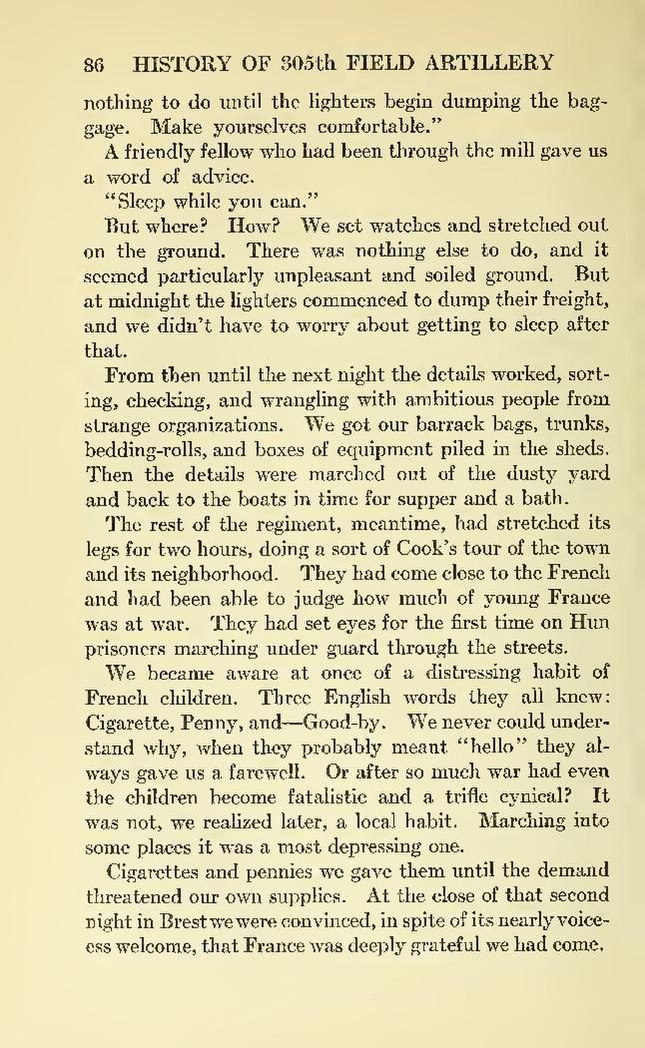nothing to do until the lighters begin dumping the baggage. Make yourselves comfortable."
A friendly fellow who had been through the mill gave us a word of advice.
"Sleep while you can.' But where? How? We set watches and stretched out on the ground. There was nothing else to do, and it seemed particularly unpleasant and soiled ground. But at midnight the lighters commenced to dump their freight, and we didn't have to worry about getting to sleep after that.
From then until the next night the details worked, sorting, checking, and wrangling with ambitious people from strange organizations. We got our barrack bags, trunks, bedding-rolls, and boxes of equipment piled in the sheds, Then the details were marched out of the dusty yard and back to the boats in time for supper and a bath.
The rest of the regiment, meantime, had stretched its legs for two hours, doing a sort of Cook's tour of the town and its neighborhood. They had come close to the French and had been able to judge how much of young France was at war. They had set eyes for the first time on Hun prisoners marching under guard through the streets.
We became aware at once of a distressing habit of French children. Three English words they all know: Cigarette, Penny, and—Good-by. We never could understand why, when they probably meant "hello" they always gave us a farewell. Or after so much war had even the children become fatalistic and a trifle cynical? It was not, we realized later, a local habit. Marching into some places it was a most depressing one.
Cigarettes and pennies we gave them until the demand threatened our own supplies. At the close of that second night in Brest we were convinced, in spite of its nearly voiceless welcome, that France was deeply grateful we had come.
